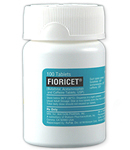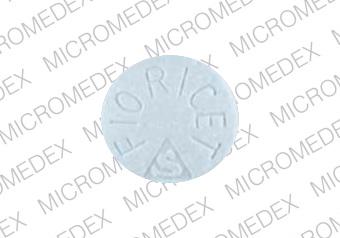 Fioricet Side effects cannot be anticipated. If any develop or change in intensity, tell your doctor as soon as possible. Only your doctor can determine if it is safe for you to continue taking this drug. Fioricet Side effects may include: fatal skin reactions, seizure, confusion, depression, excitement, stomach pain, dizziness, drowsiness, intoxicated feeling, lightheadedness, nausea, sedation, shortness of breath, vomiting, excessive sweating.
Fioricet Side effects cannot be anticipated. If any develop or change in intensity, tell your doctor as soon as possible. Only your doctor can determine if it is safe for you to continue taking this drug. Fioricet Side effects may include: fatal skin reactions, seizure, confusion, depression, excitement, stomach pain, dizziness, drowsiness, intoxicated feeling, lightheadedness, nausea, sedation, shortness of breath, vomiting, excessive sweating.
Commonly reported side effects for Fioricet include:
- Euphoria
- Dizziness
- Drowsiness
- Intoxicated feeling
- Light-headedness
- Nausea
- Vomiting
- Sedation
- Substance dependence
- Shortness of breath
- Abdominal pain
Fioricet is implicated as causing repeat headaches with over-use.
Commonly reported side effects for Fioricet include:
- Euphoria
- Dizziness
- Drowsiness
- Intoxicated feeling
- Light-headedness
- Nausea
- Vomiting
- Sedation
- Substance dependence
- Shortness of breath
- Abdominal pain
Fioricet is implicated as causing repeat headaches with over-use
Fioricet Overdose
 The treatment of Fioricet overdose is complicated by the presence of two substances which are highly toxic when taken in excessive amounts. Fioricet overdoses generally result in toxic amounts of both acetaminophen and butalbital being consumed at once, requiring both overdoses to be treated at once. Fioricet overdose by anyone and/or any consumption by persons to whom it is not prescribed (particularly children) is always a medical emergency and medical attention must be sought immediately if an overdose or consumption by other persons is suspected.
The treatment of Fioricet overdose is complicated by the presence of two substances which are highly toxic when taken in excessive amounts. Fioricet overdoses generally result in toxic amounts of both acetaminophen and butalbital being consumed at once, requiring both overdoses to be treated at once. Fioricet overdose by anyone and/or any consumption by persons to whom it is not prescribed (particularly children) is always a medical emergency and medical attention must be sought immediately if an overdose or consumption by other persons is suspected.
Fioricet overdose is often fatal and symptoms may not present for hours following consumption; once initial overdose symptoms present they can progress rapidly and there may not be time to reach appropriate medical care after this point.
Acetaminophen exerts its toxicity through the production of a toxic metabolite which can sometimes produce liver damage with doses as low as 4,000 mg, although normally requiring doses that are much higher. Acute liver failure may result in doses greatly exceeding this, and death has been known to occur with ingestion of 10,000-15,000 mg (10-15 grams of pure acetaminophen).
The specific antidote to acetaminophen overdose is N-acetylcysteine. Acute renal failure and upper gastrointestinal bleeding may also occur.
Butalbital exerts its toxicity through excessive sedation resulting in respiratory depression and ultimately death via hypoxia. Nonlethal overdoses may also result in coma and death. There is no specific antidote to barbiturate overdose and treatment is supportive. Common treatment regimens generally include the administration of intravenous administration of saline, naloxone, thiamine, glucose, sodium bicarbonate to alkalize the urine to increase rate of excretion, and activated charcoal via nasogastric tube.
It is not uncommon for a doctor to recommend observation of the patient in the emergency department for a number of hours or admission to the hospital for several days of observation if symptoms are severe and to counsel the patient on drug abuse or refer them for psychiatric evaluation.